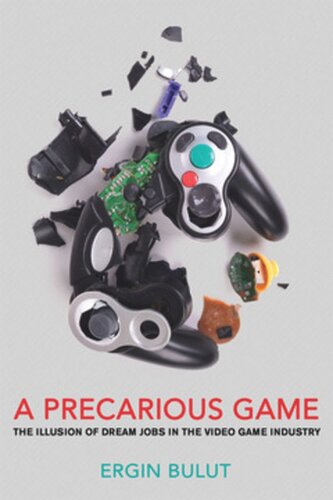

Most ebook files are in PDF format, so you can easily read them using various software such as Foxit Reader or directly on the Google Chrome browser.
Some ebook files are released by publishers in other formats such as .awz, .mobi, .epub, .fb2, etc. You may need to install specific software to read these formats on mobile/PC, such as Calibre.
Please read the tutorial at this link: https://ebookbell.com/faq
We offer FREE conversion to the popular formats you request; however, this may take some time. Therefore, right after payment, please email us, and we will try to provide the service as quickly as possible.
For some exceptional file formats or broken links (if any), please refrain from opening any disputes. Instead, email us first, and we will try to assist within a maximum of 6 hours.
EbookBell Team

4.0
76 reviewsA Precarious Game is an ethnographic examination of video game production. The developers Bulut researched for almost three years in a medium sized studio in the US loved making video games that millions play. However, only some can enjoy this dream job, which can be precarious and alienating for many others. That is, the passion of a predominantly white-male labor force relies on material inequalities involving the sacrificial labor of their families, unacknowledged work of precarious testers, and thousands of racialized and gendered workers in the Global South.
In A Precarious Game, Bulut explores the politics of doing what one loves. Passion and love at work imply freedom, participation, and choice, but they in fact accelerate self-exploitation and can impose emotional toxicity on other workers by forcing them to work endless hours. Bulut argues that such ludic discourses in the game industry disguise the racialized and gendered inequalities on which a profitable transnational industry thrives.
Work within capitalism is not just an economic matter and the political nature of employment and love can still be undemocratic even when based on mutual consent. As Bulut demonstrates, rather than considering work simply as an economic matter based on trade-offs in the workplace, we should consider work and love as a question of democracy rooted in politics.